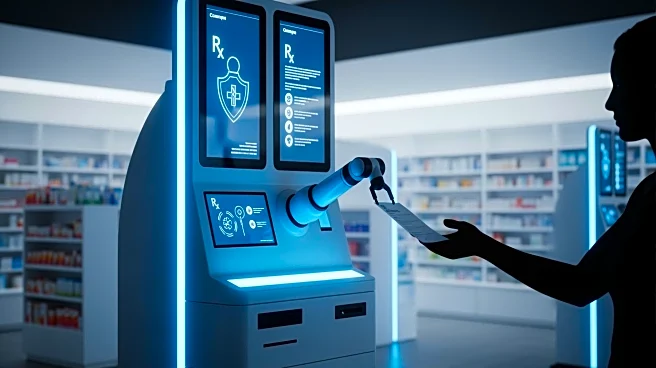What's Happening?
Amazon is introducing pharmacy kiosks at One Medical clinics to streamline the prescription process. These kiosks aim to reduce delays and the number of unfilled prescriptions by allowing patients to pick
up common medications within minutes of their visit. The kiosks will not dispense controlled or refrigerated medications, but they will offer pharmacist verification and app-based checkout for convenience. This initiative is part of Amazon's broader strategy to integrate technology into healthcare services, enhancing patient experience and accessibility.
Why It's Important?
The introduction of pharmacy kiosks by Amazon represents a significant shift towards convenience-driven healthcare. As patients become accustomed to instant access to medications, this could set new standards for healthcare delivery and patient expectations. For HR leaders, this development underscores the importance of integrating similar convenience into employee benefits, potentially influencing satisfaction and retention. The move also highlights the growing role of technology in healthcare, which could lead to increased competition among providers to offer seamless and efficient services.
What's Next?
Amazon's pharmacy kiosks could prompt other healthcare providers to adopt similar technologies, potentially leading to widespread changes in how prescriptions are managed and dispensed. As the healthcare industry evolves, stakeholders may need to address regulatory challenges and ensure the security and privacy of patient data. Additionally, the success of these kiosks could encourage Amazon to expand its healthcare offerings, further integrating technology into patient care and potentially disrupting traditional pharmacy models.
Beyond the Headlines
The deployment of pharmacy kiosks raises questions about the ethical implications of technology in healthcare, particularly concerning data privacy and the potential for increased surveillance. It also highlights the need for equitable access to such technologies, ensuring that all patients, regardless of socioeconomic status, can benefit from these advancements. Long-term, this could influence cultural perceptions of healthcare accessibility and the role of technology in personal health management.









